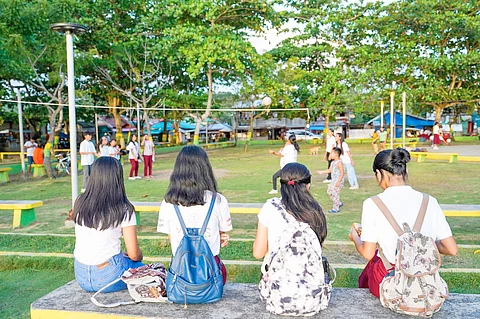
- NEWS
- the EDIT
- COMMENTARY
- BUSINESS
- LIFE
- SHOW
- ACTION
- GLOBAL GOALS
- SNAPS
- DYARYO TIRADA
- MORE

The United Nations Population Fund (UNFPA) has estimated that 228,366 unintended pregnancies in the Philippines can be averted this year until 2030 if the government can invest an additional $1.5 billion for adolescent sexual and reproductive health (ASRH) interventions.
The investment also can help the country prevent 250,180 child marriages, 236 maternal deaths and 1,827 stillbirths during the same period, according to the UN agency promoting healthy pregnancies, safe childbirth and family planning in member states.
UNFPA says that the scaled up interventions can reach 95 percent of the target population by 2030.
In the latest data from UNFPA, there are 25 adolescent girls aged 15 to 19 for every 1,000 population that give birth every year.
It adds that 5.5 percent of girls aged 15 to 19 are married or in union.
“Adolescent pregnancy and child, early forced marriage and unions (CEFMU) persist in the Philippines, hindering girls’ potential. When a girl becomes pregnant or gets married, her present and future change radically, rarely for the better. In fortunate cases, she survives the pregnancy, but she still has to drop out of school and take on the responsibility of child-rearing,” says UNFPA.
Interventions that are supported by the UNFPA and undertaken by a local non-government organization (NGO) consist of comprehensive sexuality education in school, conditional cash transfers (CCT), community dialogues and livelihood training.
UNFPA directly works with Likhaan to convene various NGOs doing community outreach and learning sessions on ASRH. It also supports Zone One Tondo Organization in reaching out-of-school youth (OSY) and helping them learn human development, family planning, human immuno-deficiency virus/sexually transmitted diseases, gender norms and prevention of gender-based violence. The OSY are also linked to available ASRH services.
In partnership with the Korea International Cooperation Agency, the UNFPA launched in 2023 the Joint Program on Accelerating the Reduction of Adolescent Pregnancy to serve pilot areas in Southern Leyte and Samar.
Meanwhile, unmarried adolescents are targeted for livelihood training or community to delay sexual initiation, increase contraceptive use, and improve earning potential.
ASRH services also cover maternal health. Under CCT, pregnant women are given cash for accessing at least four antenatal consultations, delivering in a health facility providing quality care, and accessing one postnatal care. The cash are intended to cover their transportation fees, purchase of nutritious food, and any other ancillary costs related to accessing health services at the facilities.
Traditional birth attendants are also provided with incentive payments for their effective outreach to pregnant women.
Complementary to cash for health are maternity packs to pregnant women which contain items for postpartum mothers and newborn clothes.
UNFPA’s partners lead intergenerational dialogues targeting women, men, and young people to discuss the practice of home births, family planning, and child marriage.
